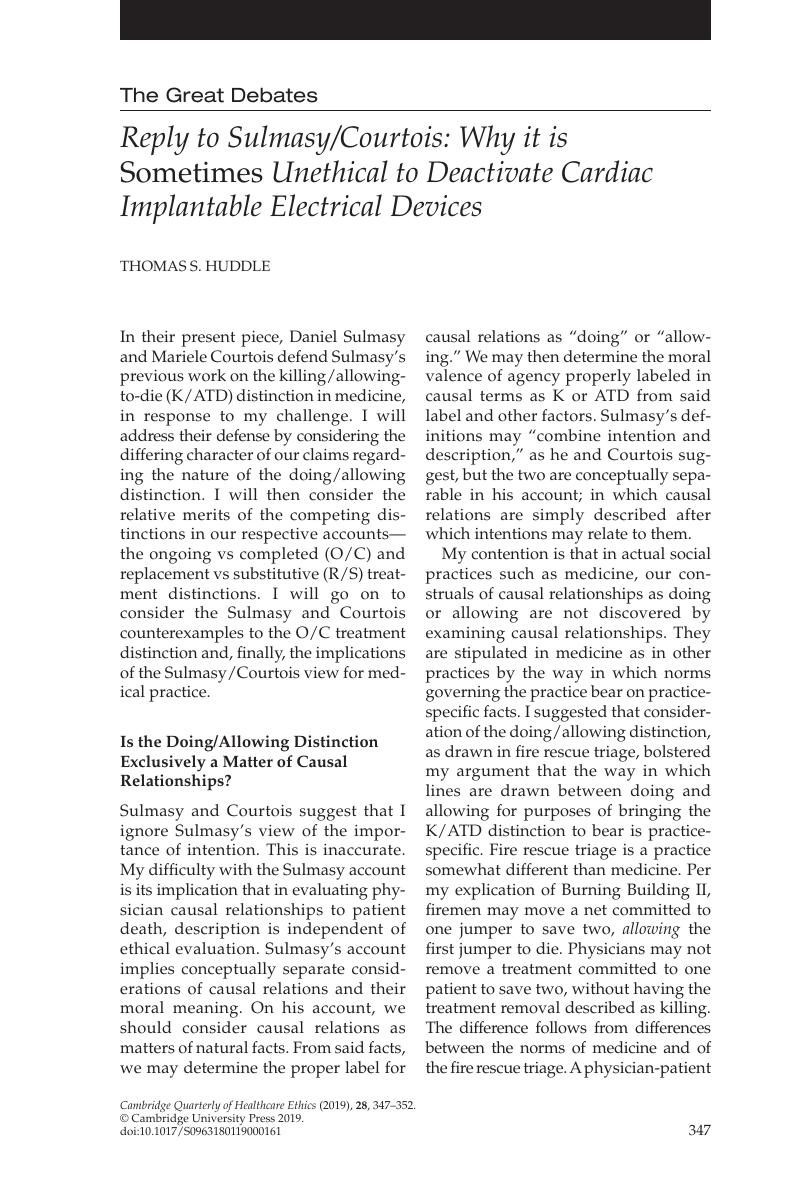Article contents
Reply to Sulmasy/Courtois: Why it is Sometimes Unethical to Deactivate Cardiac Implantable Electrical Devices
Published online by Cambridge University Press: 22 May 2019
Abstract

- Type
- Departments and Columns
- Information
- Copyright
- Copyright © Cambridge University Press 2019
References
Notes
1. Some have suggested that by Sulmasy’s criteria, some CIEDs fit the replacement treatment category better than a heart transplant might, given the superior immunological compatibility of CIEDs with the patients into whom they have been implanted. See Rady ML and Verheijde JL Ethical challenges with deactivation of durable mechanical circulatory support at the end of life: Left ventricular assist devices and total artificial hearts. Journal of Intensive Care Medicine 2014;29(1):6.
2. Sulmasy, DP. Within you/without you: Biotechnology, ontology and ethics. Journal of General Internal Medicine 2008;23(Suppl 1):72.CrossRefGoogle Scholar
3. Oxford English Dictionary “homeostasis.”
4. Dunn, SP, Krueger, LJ, Butani, L and Punnett, H. Late onset of severe graft-versus-host disease in a pediatric liver transplant recipient. Transplantation 2001;71:1483–5.CrossRefGoogle Scholar
5. A knottier problem might be treatment interference with which seems to demand construal as killing rather than allowing-to-die, such as a hypothetical total artificial heart (TAH) independent of external power requirements or physician adjustment. Sulmasy might consider such a TAH to be a replacement treatment analogous to an organ transplant. How would he regard explantation of such a TAH if it became irrevocably infected in the absence of a plan for replacement?
6. Mueller, PS, Swetz, KM, Freeman, MR et al. Ethical analysis of withdrawing ventricular assist device support. Mayo Clinic Proceedings 2010;85(9):791–97.CrossRefGoogle Scholar
- 1
- Cited by




